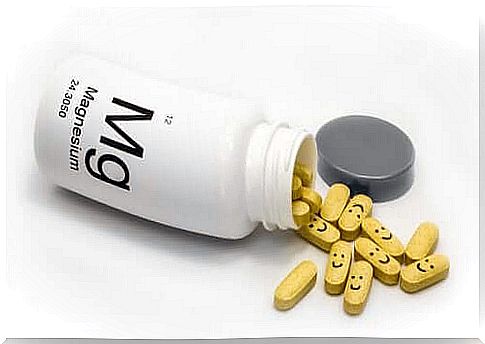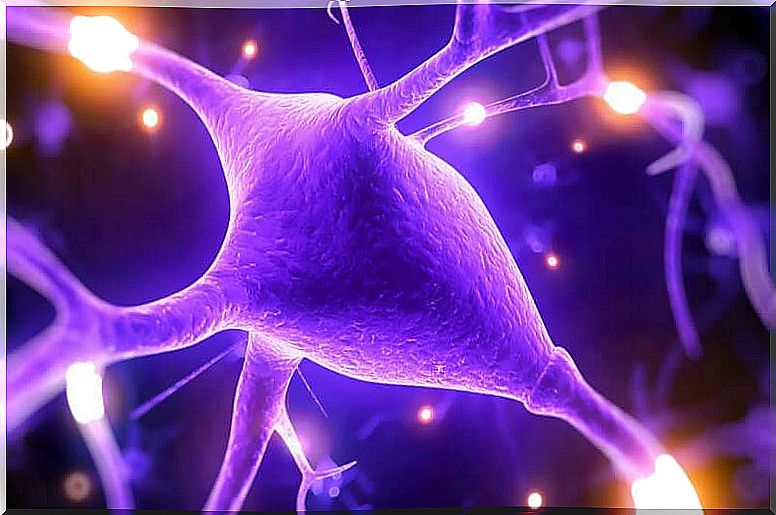Hypermagnesemia Or High Levels Of Magnesium
Hypermagnesemia is a medical condition that can have serious consequences and even lead to death. It usually occurs in people with kidney failure. But especially in those who consume drugs or supplements with excess magnesium.

Hypermagnesemia is defined as an excessive concentration of magnesium in the blood. The normal value of this element in an adult person is 1.5-2.5 mEq / L. When it is lower than this value in laboratory tests, it is called hypermagnesemia.
The presence of hypermagnesemia implies the existence of a fluid and electrolyte imbalance in the body. Magnesium is one of the body’s electrolytes. This means that it carries an electrical charge when it dissolves in bodily fluids. However, the majority of magnesium in the body does not have an electrical charge.
Either way, hypermagnesemia is an uncommon disease that is associated, most of the time, with kidney problems. Indeed, most often it takes place in people with kidney failure.
Magnesium in the body

Magnesium is a fundamental building block for all living things. It is an essential mineral nutrient for life. In addition, it is found in cells and plays an important role in their balance and proper functioning.
Indeed, there are over 300 enzymes that need magnesium to perform some of their most important functions. In principle, it is the cells themselves that regulate the flow of magnesium. Therefore, this element activates and moderates various biochemical reactions of the organism.
Maintaining a normal magnesium content is fundamental for health. Lack or excess of this element can cause heart and / or nervous system problems. Hypermagnesemia is therefore a delicate condition which can have very serious consequences.
The causes of hypermagnesemia
The kidneys are the organs responsible for excreting magnesium. Therefore, any abnormal condition or damage to these organs can lead to hypermagnesemia. The main causes are as follows:
- Kidney failure: this is the most common cause of hypermagnesemia. This is because kidney dysfunction prevents the normal excretion of magnesium
- Excessive ingestion of magnesium: Eating or consuming too much of certain substances, such as laxatives, antacids, or certain dietary supplements, can cause this problem.
- Chemotherapy: certain chemotherapies influence the development of tumor lysis syndrome. In turn, this increases the levels of magnesium
- Extensive burns
- Other chronic diseases: for example, hypothyroidism and Addison’s disease
Symptoms and diagnosis

The diagnosis of hypermagnesemia is made through blood tests. Usually, when magnesium levels are only slightly elevated, no recognizable symptoms are present. On the other hand, if the magnesium index continues to increase, it is very likely that the following symptoms will appear:
- Muscular weakness
- Vomiting and nausea
- Headache
- Irregular or slow heartbeat
- Heat and redness of the face
- Drowsiness
- Dizziness, fainting and / or slow reflexes
- Slow breathing
- Muscle paralysis
When a person suffers from hypermagnesemia and falls asleep without being able to wake up or has great difficulty moving their arms and legs, they should go to the hospital immediately. Also, if breathing and heart rate are slow and there is drowsiness as well as muscle weakness, it is essential to see a doctor as soon as possible.
Treatment of hypermagnesemia
The treatment to be given to fight against a high level of magnesium in the blood depends entirely on the cause which is at the origin of it. People with kidney failure, those who represent the most affected group, should follow strict medical supervision regarding the medications they are taking and their general health. On the other hand, it is quite common that they resort to dialysis.
Kidney dialysis is a treatment that helps the kidneys remove certain chemicals, such as waste products from the blood, when they can no longer perform this function on their own. Sometimes dialysis is not necessary. Treatment with medication is sufficient to correct the situation.
In addition, calcium gluconate or diuretics are usually prescribed. Laxatives or antacids that contain magnesium should also be avoided. In case the person has a tendency to constipation, it is best to regulate this situation through a balanced diet rich in fiber.
Finally, it is always recommended to consult the doctor about the medications to be ingested, even those that are over the counter. Likewise, it is necessary to check with a doctor before taking supplements with magnesium. These should also be kept out of the reach of children.









